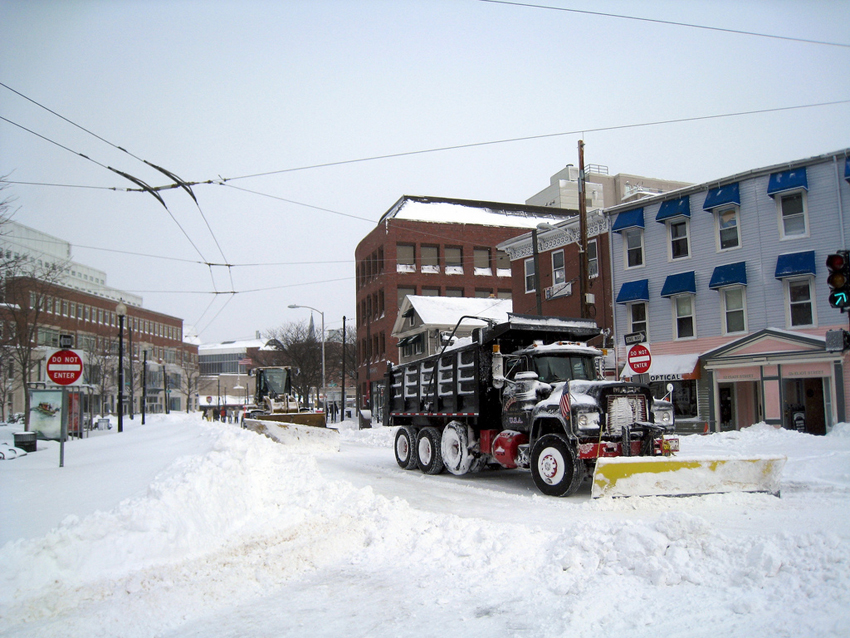City, State Plow Through Snow Removal Budgets This Season

Photo by James Byrum on Flickr
Here’s one more reason that spring can’t arrive soon enough: This winter, the city and state have surpassed their spending budget for snow removal.
On Tuesday, Massachusetts was hit with another winter storm, dropping as much as eight inches of snow in some areas. Workers for the Massachusetts Department of Transportation were out in full-force on Monday night, leading up to the storm, so that they could keep the roads clear for the early morning commute.
But with the consecutive snowfall and extreme wintry weather this season, MassDOT has now plowed through the funds reserved for snow and ice removal. The state agency has already used more than $84 million clearing roadways, highways and state-owned properties, according to MassDOT spokeswoman Sara Lavoie.
That amount is expected to rise as the cold weather continues and MassDOT receives deliveries of materials and calls on plow truck vendors to help clean up the roadways.
MassDOT had only budgeted $45.5 million for snow removal costs in the current fiscal year, nearly doubling what they anticipated on spending.
In a statement sent to Boston magazine, Lavoie said that Beacon Hill is aware that MassDOT exceeded its budget, “which makes a supplemental budget likely in our future.”
“Spring may be here, but we all know that does not necessarily mean the end to plowing and treating roadways,” said Lavoie.
Last year, during an unseasonably mild winter, MassDOT only spent $35 million on snow and ice removal. It was not immediately clear if the agency surpassed last year’s spending budget.
Boston has also faced a cash crunch this winter, coming close to over-spending on snow removal efforts after the last snowfall several weeks ago, and surely tipping the budget after Monday night’s storm.
According to Meredith Weenick, Boston’s chief financial officer, on February 21 the city had roughly $2 million left in reserve for winter clean-up. In February, Boston spent $13 million on the Blizzard of 2013 alone. Storms similar to the one that hit the area on Monday cost roughly $2 million to tackle, according to data from city officials.


